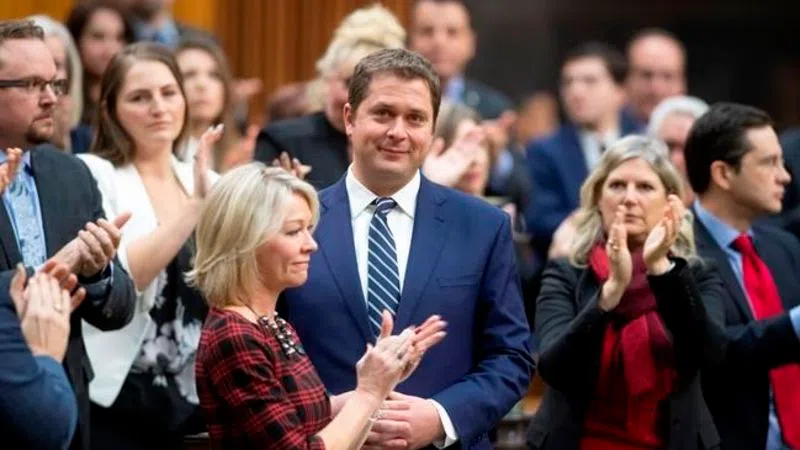
A talk with his son, a seat in the sun: Scheer’s decision to step down
OTTAWA — Mid-way through last week, Conservative Leader Andrew Scheer came home from a day on Parliament Hill and got to talking with one of sons.
He realized, he would tell Conservative MPs and senators at meeting Thursday morning, he had no idea what was going in his child’s life.
Ever since he failed to secure a majority on election night he had known the party might not allow him to stay on as leader.
But the conversation with his teenage son Thomas made him realize the time had come to make a choice about whether he wanted to stay, he told his MPs, according to people who were in the room but, under caucus rules, not authorized to speak publicly about what happened.

